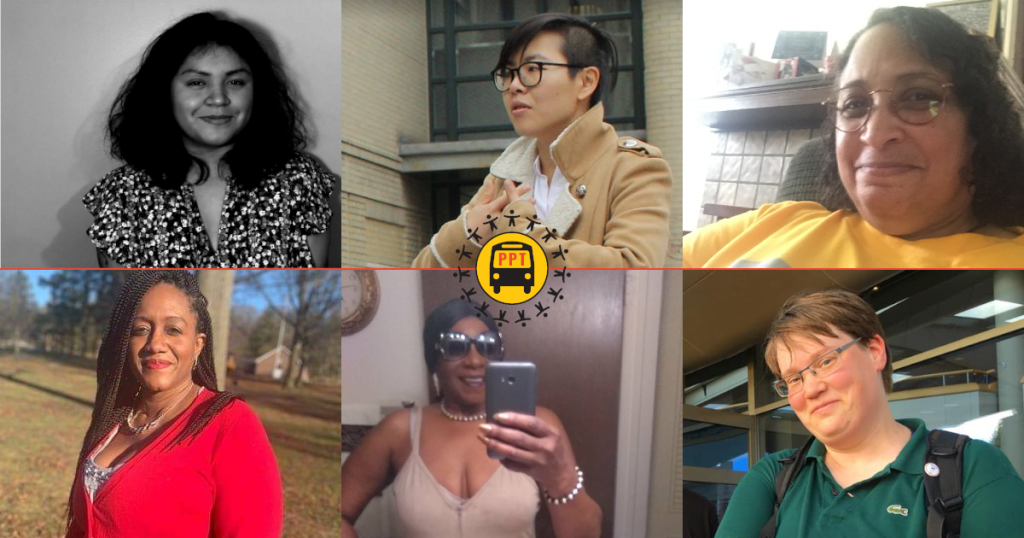
Pittsburghers for Public Transit believes in transparency, accountability, public participation, democracy, collaboration, and shared leadership.
And we want to practice what we preach.
So each year our organization runs an open nomination and election process for our general membership to choose 5 people to serve on our Coordinating Committee (aka our Board of Directors). The Coordinating Committee is an 11-member body that helps to guide PPT’s campaign strategy, committee work, and fundraising efforts. Two of those seats are reserved for members of Amalgamated Transit Union, Local 85 (the union that represents all of the Port Authority’s bus operators and mechanics) because PPT believes fundamentally that riders and operators are the ones that are best qualified to improve the system. Each elected member serves for a 2-year term.
For those that are doing the math, the final unelected seat is filled by the Executive Director of The Thomas Merton Center or their appointee because they act as PPT’s fiduciary.
And for those reading closely, you may be asking; how did 6 people win if there were only 5 seats up for election in 2020? Well, that is thanks to a tie for the 5th place seat. The sitting Coordinating Committee (minus those up for re-election) voted to settle the tie by expanding the committee by one-seat in the immediate-term. They will be taking up a discussion on long-term structural changes, possibly adding more seats, at the first meeting of the new CC on July 25th.
Pittsburghers for Public Transit is very excited to announce the winners of 2019’s Coordinating Committee election!
Congratulations to the next slate of Coordinating Committee members who will serve until Summer 2022 (and possibly longer if they run for reelection!)
Christina Acuna Castillo
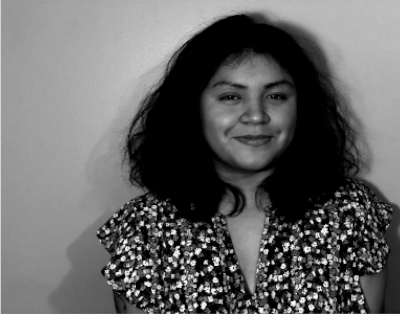
Christina Acuna Castillo is a Peruvian cultural worker, artist, and organizer based in Pittsburgh. They have served as a translator to recently resettled Spanish-speaking refugees and has taught Latinx youth through Casa San Jose about ways to support, protect, and preserve cultural memories and practices. They now work multiple jobs. They work with the Emergency Response Team at Casa San Jose, providing resources and support for families dealing with ICE, and have spent many years with CSJ organizing with the undocumented community, both young folks and older. Christina is also the Digital Organizer and Artist for Pittsburgh United, working with all three campaign tables around housing justice, worker justice, and water justice. For over two years, they have also worked with the Pittsburgh Foundation as an advisor on their Social Justice Fund and as a grant reviewer for the Rapid Response Fund that is being coordinated by the Pittsburgh Foundation and New Voices Pittsburgh
Christina creates artwork that is used in protests, vigils, marches, and other community gatherings. They believe that visual arts is an essential organizing and accessibility tool because it helps people imagine what change looks and feels like. And that’s what they have tried to bring to PPT, and that is what they would like to continue to provide to PPT – the visionary and organizing skills and possibly anything in between that is needed.
Bonnie Fan
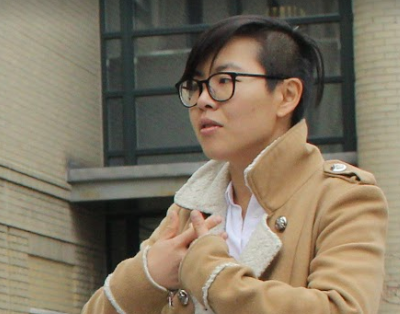
Bonnie worked in transit for four years before coming to Pittsburgh, seeing laid bare the lack of regard for operators, the policing of riders, and power grabbing mindset of management that prevented any kind of internal change possible. While joining Otolunji Oboi Reed’s Equiticity campaign prior, they found a stronger force in mobility justice worked centered in Black and Brown communities.
Seeing the work made possible with PPT’s grassroots mobilization has changed the way Bonnie orients her work. In seeing the narrative arcs of other cities play out, especially for post industrial cities, they are deeply concerned by the secret privilege of private developers, universities and tech companies when it comes to how the public domain should be made and who it should be made for. In this landscape, also complicated by political and financial relationships, PPT has been one of the few where grassroots voice has been able to fight and win for riders and workers without compromise.
Much of the other work they are involved in is against predictive policing and #NoTechForICE – all of which falls in the realm of tools and decisions made in favor of existing oppressive power dynamics.
Verna Johnson
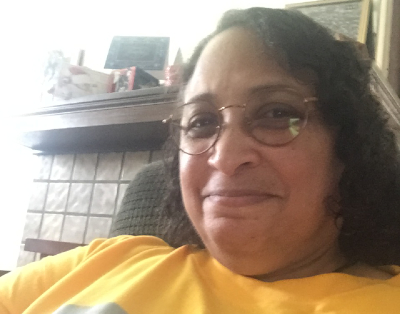
I am fighting to get free transportation that is based on people’s incomes for Port Authority. Everyone deserves to be treated equally relative to their income. I have been involved with PPT since 2015. First I was part of the neighborhood leadership team fighting for weekend service in Garfield in 2015, and we won! Since then, I have testified with PPT at Port Authority meetings around the importance of maintaining service on the 61 and 71 lines with the BRT plan. I also spoke at a PPT rally to prevent transit policing on the T and a rally before we presented 2,500 “Make Our Fares Fair” petition signatures to the Port Authority Board. I was also one of the sketch note artists for the Fair Fares graphic novel planning meeting.
I do this work because our neighborhoods deserve better routes and better run times, and Port Authority should hear from residents about what they need. People that work for Port Authority are front-line workers, and more should be done to keep them safe.
Fawn Walker-Montgomery
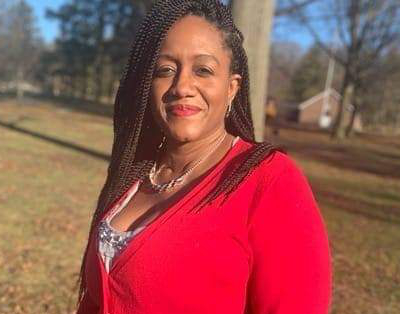
Fawn Walker-Montgomery is the Co-Founder and Executive Director of Take Action Mon Valley (TAMV). She is a former candidate for Mayor in McKeesport and a past candidate for State Representative in the 35th District. Fawn was the first black person & woman to run for a State seat in the Mon Valley. She has a B.A. in Political Science from Johnson C. Smith University (HBCU) and a Master’s of Science in Criminal Justice Administration Point Park University.
Fawn is also a past second-term Councilwoman in McKeesport. She has 18 years of experience in the human services field.
Debra Green, re-elected to a 2nd term

Debra Green has been a member of the PPT Coordinating Committee since 2018, but has been a leader in advocating for improved transit service even prior to her work with PPT. In 2008, Ms. Debra led a petition drive with her co-workers at the Rivers Casino for improved transit service at the casino, and based on that success, she campaigned for service improvements to the Hilltop Parkview Apartments in Duquesne. She was successful in mobilizing hundreds of residents to sign petitions and call Port Authority to request the transit service, and both efforts won life-changing improvements for bus riders.
Ms. Debra became involved with PPT in the effort to prevent devastating cuts to the 61 bus lines in the Mon Valley in Port Authority’s Bus Rapid Transit proposal, and helped design and launch the Riders’ Vision for Public Transit. She was a Beyond the East Busway organizing fellow, helping to get fellow Duquesne residents to take the survey to expand rapid transit into the Mon Valley, and she helped lead the successful organizing effort for weekend service in McKees Rocks. She has testified countless times at the Port Authority board meetings, and has been active with Just Harvest and Put People First in connecting food justice, the fight for universal healthcare and transit justice, and has traveled to Harrisburg to lobby for all of these needs. She was profiled in the Huffington Post for her transit advocacy efforts with PPT.
Alison Keating, re-elected to a 2nd term
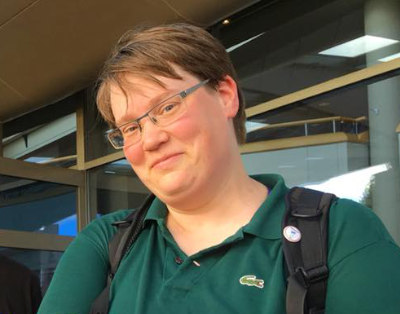
My relevant experience that I apply to PPT comes from reading decades of news articles about development, housing, transit, and, more recently, the history of Allegheny County politics. I like that we don’t play favorites when it comes to politicians or political fights, we’re only concerned about what’s best for riders and drivers, and finding compromises that lead to better service and better understanding.
Going forward, I’m interested in zoning and think we could do interesting work there because it’s part of the system keeps us from having more equitable and diverse development, especially when it comes to whether transit is even considered. You can build all the affordable housing you want, but if it’s 2 hours away from everything (education, entertainment, jobs, health care, family & friends), you’re asking people to spend greater amounts of their time uncompensated, unfree, or to go without having their needs met, and that’s a little-recognized public health crisis for a growing number of people.